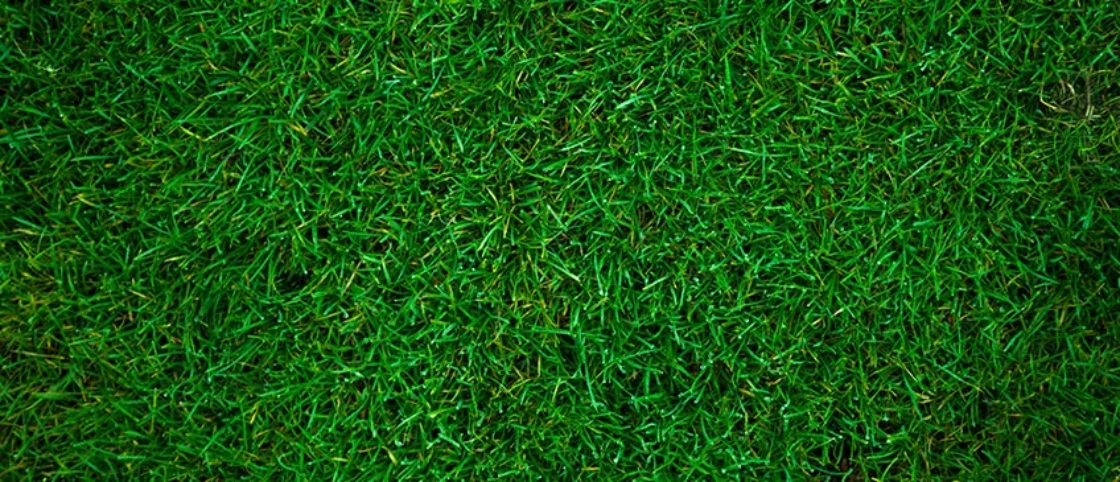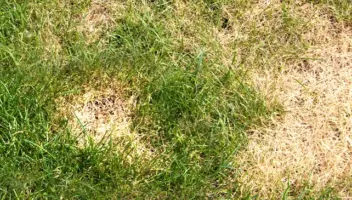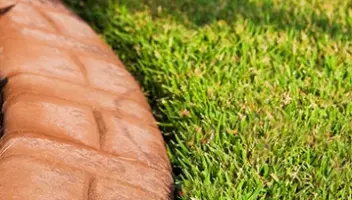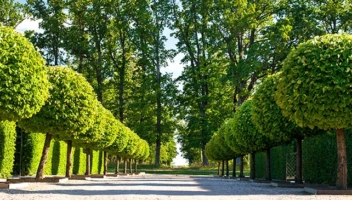Natural vs. Artificial Grass

Updated
June 22, 2016
Author
Amanda Curry
Read Time
3 minutes
As a homeowner, you have two basic options for your yard. You can leave your natural grass in tact or convert it into artificial grass. There are a variety of factors such as maintenance, environmental impact, visual appeal, and cost that may lead you to choose one type of grass over another. Here at LeafFilter, we’ve decided to help you take some of the guesswork out of trying to determine which type of grass is ideal for your yard by compiling this handy pro and con list.
Natural Grass Pros
- Improved Air Quality: Turf grass is known for filling the air with dirt, dust, and a number of harmful impurities such as carbon dioxide. By keeping the real grass on your lawn, you can enjoy purified air and improved air quality that is not typically attainable with artificial turf.
- Cooling Agent: Real grass can act as a cooling agent and naturally cool itself and its surroundings. It offsets about half of the solar heat through cooling evaporation and can save you money on air conditioning costs as a result.
- Safe Recreation Surface: Natural grass is a solid choice for homeowners with children because it provides a cool, cushioned playing surface. When children play in it, they are less likely to injure themselves or develop infections that may occur when playing in artificial grass.
Natural Grass Cons
- Higher Cost: One of the greatest disadvantages of keeping real grass rather than investing in artificial turf is the cost. The majority of expenses from a natural grass lawn come with maintaining the equipment to trim, mow, seed, and fertilize the lawn. Additionally, some homeowners may also pay a professional on a regular basis to care for it, making it a higher ongoing expense.
- Greater Maintenance: In order to keep real grass in excellent condition, homeowners must devote several hours a week to mowing, trimming, seeding, and fertilizing the lawn. Most homeowners live busy lives and would much rather spend their time with friends and family enjoying their favorite pastimes.
- Extensive Water Usage: In order to maintain natural grass, thousands of gallons of water each year is used. Water usage depends on the variety and hardiness of the grass as well as the type of area it’s located in. More water is used in areas where droughts are common.
Artificial Grass Pros
- Lower Cost: Artificial turf involves one upfront investment. Once you pay for the initial cost of artificial turf, you won’t have to worry about maintaining it over its lifespan. When you divide the initial cost of the turf by its lifespan, you’ll notice that this option is a better long-term investment.
- Minimal Maintenance: The greatest perk of artificial turf is the minimal maintenance it requires. Brushing the blades from grass regularly and rinsing the lawn on occasion to fend off pet odors and dust are the only maintenance tasks homeowners with artificial grass may face. The purpose of brushing the blades is to keep them from pressing down after a substantial amount of foot traffic.
- Water Conservation: In most cases, a yard with artificial turf will not require any water. The only real instance where water may be used is to rinse away the residue left behind by a pet or animal. Dust prompted by the infill may also require water for removal.
- Environmental Protection: Homeowners who decide on artificial turf will play a significant role in protecting the environment. An artificial yard will drastically reduce the amount of pesticide and fertilizer you use and therefore minimize pollution.
Artificial Grass Cons
- Heat Hazard: Unfortunately, artificial turf contains heat absorbing properties that can make it too hot to play on in scorching hot temperatures. This may be a concern for homeowners with children or pets who often spend time playing outside in the grass.
- Permanent Grass: Once you make the decision to go with artificial turf, the artificial turf is permanent. If you decide to replace the artificial grass, your only option will be to install another field of artificial grass. When plastic replaces reak grass, it kills subsoil organisms and makes it impossible to grow anything on that surface.
The decision to keep your real grass or install artificial turf depends on your particular preferences and priorities. Which type of grass will you choose for your yard?


